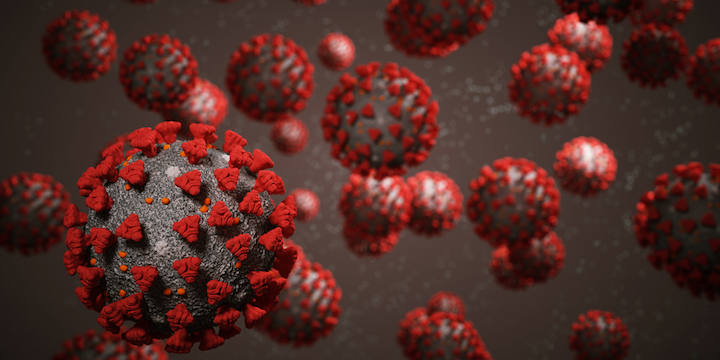Hard blow for AstraZeneca. A study by the University of the Witwatersrand in Johannesburg says the vaccine offers “limited protection against moderate forms of the disease caused by the South African variant in young adults.”
According to the first results of the study in question, this vaccine is only 22% effective against moderate forms of the South African variant. No results are yet available on its effectiveness against severe forms.
“South African and British researchers found that (…) the vaccine was much more effective against the original (strain) of the coronavirus” than against the variant, it is stated in a statement on the study of the University of the Witwatersrand in Johannesburg, which has yet to be peer reviewed.
“A temporary problem”
Lagging behind in the global vaccination race, South Africa, officially the continent’s worst-hit country with nearly 1.5 million cases and more than 46,000 deaths, received its first shipment of ‘one million vaccines on Monday. All of these are AstraZeneca / Oxford vaccines produced by the Serum Institute of India.
These first doses were intended primarily for 1.2 million health workers. The study by the University of the Witwatersrand, carried out on 2,000 volunteers aged on average 31 years, does not “allow to rule” on the effectiveness of the vaccine against severe forms of the disease, hospitalizations and deaths “because the target population was at low risk “, judges the University of the Witwatersrand.
“This is a temporary problem, we must suspend AstraZeneca vaccines until we resolve these problems,” South African Minister of Health Zweli Mkhize commented at an online press conference. “The first results seem to confirm that the mutation of the virus detected in South Africa can be transmitted to the population already vaccinated”, he added.
Vaccines against variants soon?
“We believe that our vaccine will still protect against severe forms of the disease,” said a spokesperson for AstraZeneca, contacted by AFP. “Because the activity of the neutralizing antibodies is similar to that of other vaccines against Covid-19 which have been shown to be effective against severe forms, in particular when the doses are spaced 8 to 12 weeks apart”, wanted to qualify this door -speak.
According to Sarah Gilbert, a researcher leading vaccine development at the University of Oxford, it may also take “some time” before the effectiveness of the vaccine can be determined against this strain – which is increasingly present in the UK. – in the elderly. “A version (of the Oxford / AstraZeneca vaccine) with the South African variant sequence is in preparation,” Gilbert told the BBC.
“The second generation of vaccines to fight against all variants will take longer to produce”, has already warned Prof. Salim Abdool Karim, epidemiologist and co-chair of the scientific committee at the South African Ministry of Health.
“Rethinking the pandemic”
“These results force us to rethink our way of approaching the pandemic,” said Shabir Madhi, professor of vaccinology at the University of the Witwatersrand, in charge of the study in South Africa. “In the next four weeks, we will have Johnson & Johnson and Pfizer vaccines”, wanted to reassure the South African Minister of Health.
Discussions with other laboratories are also underway, including Moderna and Russian vaccine maker Sputnik V, he added, as the country recently announced that it has reserved 20 million Pfizer / BioNTech vaccines.
 Cherry tomatoes contaminated with salmonella: 92 sick and 1 dead
Cherry tomatoes contaminated with salmonella: 92 sick and 1 dead  A better coaching method can make a person grow
A better coaching method can make a person grow  What is the method to prevent diabetes in children?
What is the method to prevent diabetes in children?  What are the effective factors in causing stomach ulcers?
What are the effective factors in causing stomach ulcers?  Why do embarrassing memories seem to appear at night?
Why do embarrassing memories seem to appear at night?  The amazing link between SARS-CoV-2 infection and newly started diabetes
The amazing link between SARS-CoV-2 infection and newly started diabetes  WHO says monkey pox is not a global emergency right now
WHO says monkey pox is not a global emergency right now  Single cell RNA sequencing uncovers new mechanisms of heart disease
Single cell RNA sequencing uncovers new mechanisms of heart disease  Hepatitis of unknown origin: 3 new deaths and 228 cases worldwide
Hepatitis of unknown origin: 3 new deaths and 228 cases worldwide 